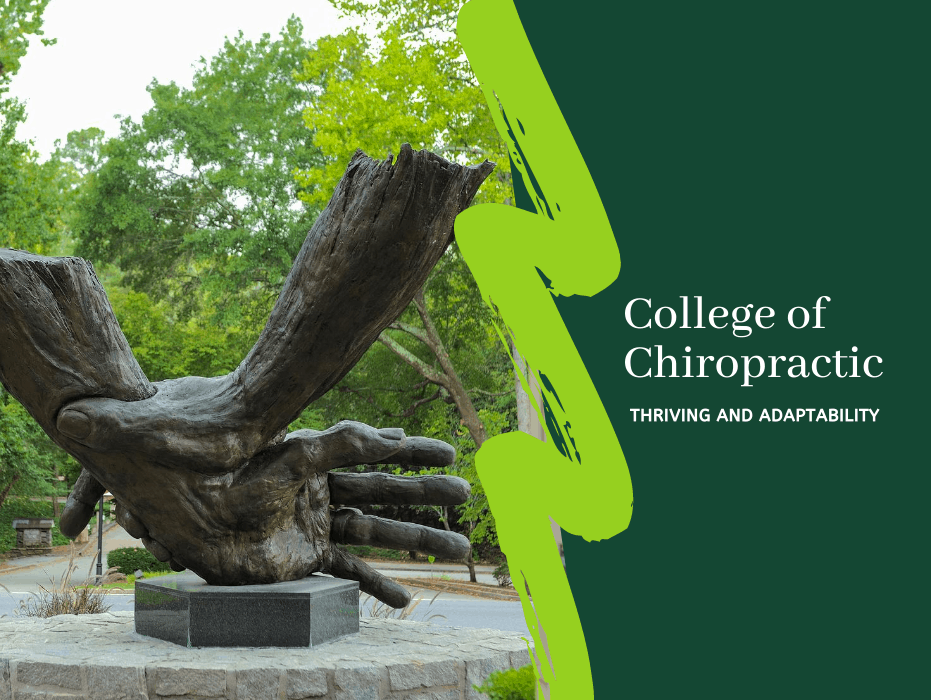The Mission of the Life University College of Chiropractic, centered on the Vertebral Subluxation Complex, is to educate, mentor and graduate skilled and compassionate Doctor of Chiropractic to be primary care clinicians, physicians, teachers and professionals, using the University’s core life proficiencies as their foundation. Faculty and administrators are constantly working hard to support the mission by constantly looking for ways to educate, mentor and graduate students that are ready to add value to the chiropractic profession. This is a challenging goal, but due to the determination and commitment of the college, we are able to achieve it by continuing to be the largest single-campus chiropractic program in the world. Some of the results of this commitment can be seen in the college’s retention and completion rates. Our most recent first, second and third-year retention rates are in the 90th percentile. Our Spring 2019 cohort’s first-year retention is 94%, Winter 2018 cohort’s second-year retention is 96% and Spring 2017 cohort’s third-year retention is 93%. Our completion rate is currently 72.2%, and we are trending upward with our future cohorts.
Life University’s Doctor of Chiropractic Program (DCP) Clinic System continues its transformation of operations focused on maintaining our gold standard of quality patient care and providing an environment for students to continue to learn how to become exceptional chiropractors. This transformation is focused on the identification of the goals of patient care; educating the patient on the possibilities of optimum health; and providing condition-based, corrective and lifetime wellness care to improve the quality of life. It will also provide a vitalistic model of health care that becomes the philosophical and practical foundation for restructuring our healthcare system. There will be a philosophical, clinical, educational and procedural consistency across the DCP, focused on delivery of the highest quality chiropractic patient care. The LIFE model of patient care will be built on three foundations – vitalistic philosophy, patient-centered care and education, and humanistic doctor-patient relationships. DCP faculty and administrators are collaborating on making these foundations a reality.
Task groups have been created and charged with reviewing and making recommendations in the following areas:
- Clinic Graduation Requirements
- Clinic Course Sequencing
- Patient Education
- Chiropractic Practice Management
- Patient Care Guidelines
This initiative is ongoing and is expected to be developed and implemented in the next two-to-four years.
The DCP prides itself on the ability to adapt and make changes that are in the best interest of our students. This characteristic has been put to the test in the last five months with the onset of COVID-19. The year 2020 began as normal with students on campus attending classes and clinic. Faculty and staff were attending to their normal duties of face-to-face education, and staff were providing any necessary assistance within the college. On March 17, 2020, seven weeks into Winter Quarter 2020, the campus was shut down due to the COVID-19 pandemic. The campus became a ghost town with the absence of students and very little presence from staff. This shut down created an immediate shift from face-to-face teaching to remote teaching. This shift was unprecedented, but thanks to the tenacity of the DCP faculty and the Center for Teaching and Learning Excellence (CETL) staff, it was a phenomenal success. It was noted that due to the timing of the COVID-19 pandemic, most laboratory and technique finals had been in progress or completed. Lecture course examinations were created and delivered in an online format through the institution’s learning management system, Blackboard. The institution’s CETL quickly developed training sessions providing step-by-step ‘how to’ procedures to administer an assessment normally overseen in a classroom into a format that could be delivered online. Faculty quickly went to work and converted their examinations to an online format, which included methods to ensure academic integrity while students took the examinations. Thanks to the collective expertise of the CETL staff and other specialists in Blackboard, finals were delivered successfully without issue for the Winter Quarter 2020.
DCP’s outpatient clinic remained open, and faculty clinicians provided patient care. COVID screening procedures consistent with the Center for Disease Control (CDC) and Georgia’s Department of Health guidelines were immediately put into place. Procedures included a mailed written notice to all patients with screening questions that, if positive, would prohibit their entry into the clinic; then upon arrival, additional screening procedures were followed. In addition to patient and employee screening, enhanced cleaning and disinfecting protocols were also immediately enacted throughout all areas of the clinic.
The DCP administration continuously monitored the data from the CDC and quickly realized that COVID-19 was not going away anytime soon. The administration began working on a plan to continue education in a remote environment. This work was done in conjunction with the CETL to develop how the Spring Quarter 2020’s educational materials would be delivered and what support would be needed for faculty and students. The willingness of the faculty to remain vigilant to educate, and the student’s yearning to continue with their education, allowed Spring Quarter 2020 to be completed successfully in a 100% remote environment. Once the State of Georgia created the reopening phases, the DCP used those guidelines, along with the CDC and Georgia’s Department of Health guidelines, to prepare for Summer Quarter 2020. This resulted in arranging the DCP laboratory classrooms for on-ground instruction while continuing to keep lecture instruction remote. The DCP currently has more than 1,000 students who have returned to on-campus instruction for Summer Quarter 2020.


Social Media